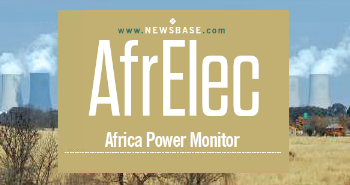Russia’s nuclear firm Rosatom to collaborate with South Africa on floating NPP project
Russia’s state nuclear energy corporation Rosatom is developing a floating nuclear power plant (NPP) project for South Africa, Interfax news agency reports.
Ryan Collier, Rosatom CEO in Central and Southern Africa, announced the joint project during a briefing at the Atomexpo 2024 international forum taking place in Sochi on March 25-26.
“South Africa is collaborating with Rosatom on a floating NPP project. The matter of localisation is very important. We will localise production where we can,” Collier was quoted by the news agency as saying.
According to Rosatom CEO Alexei Likhachev, the state nuclear energy corporation has received a number of applications from African countries to consider projects to construct new NPPs. South Africa, which boasts the only operational NPP on the continent, has also expressed such interest.
Rosatom is also considering the construction of a small-scale hydroelectric power station in one of the African countries, and the matter is “at the fullest extent of being worked out,” Likhachev added.
This year’s Atomexpo forum is the 13th staging of the business and exhibition event sponsored by Rosatom. The state nuclear energy corporation plans to expand its cooperation with African countries.
In Western, Eastern and Southern Africa, several countries are considering, planning or starting nuclear power programmes. Nigeria, Ghana, Senegal, Kenya, Uganda, Tanzania, Zambia, Namibia, Rwanda and Ethiopia have indicated their ambitions to go nuclear.
Egypt in Northern Africa is currently building its first NPP with Rosatom’s help. The El-Dabaa Nuclear Power Plant will be the first in Africa to use Russian technology, representing a major step in the region’s nuclear industry.
At the expo in Sochi, Rosatom also signed a memorandum of understanding (MoU) with Burkina Faso on potential nuclear energy projects.
Rosatom CEO and Burkina Faso’s Energy Minister Yacouba Zabre Guba have signed a roadmap which “outlines concrete steps for both sides to build the West African country’s peaceful nuclear workforce, develop nuclear infrastructure and create a positive public opinion regarding nuclear energy in Burkina Faso,” the MoU said as cited by World Nuclear News.
“Based on the results of the formation of an international legal framework for cooperation, the parties intend to work on the issue of implementing nuclear generation projects and non-energy applications of radiation technologies in agriculture and medicine in Burkina Faso,” it added.
Russia is actively developing cooperation with emerging nuclear countries. “Despite external restrictions, the domestic economy is increasing its export potential, supplying goods, services and raw materials around the world. Rosatom and its divisions take an active part in this work,” the state nuclear energy corporation said.


Follow us online